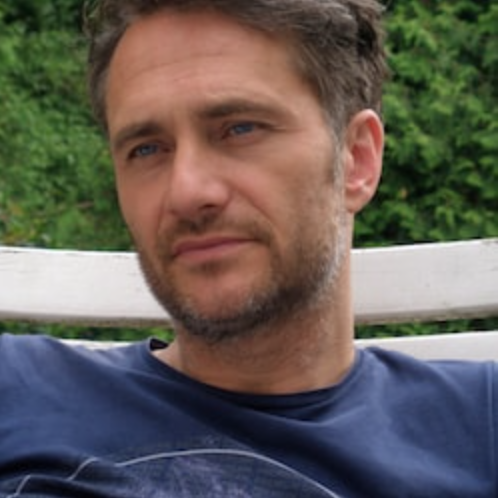One of the speakers at The Organic and the Normative conference, taking place between July 30–August 1, 2024 in Ljubljana, Slovenia, is going to be Andreas Weber.
Andreas Weber (* 1967) is a Berlin based philosopher and nonfiction writer, translator and independent scholar. Andreas holds degrees in Marine Biology (Msc) and Cultural Studies (PhD). He has worked with theoretical biologist Francisco Varela in Paris. Andreas’ philosophical and literary work is focusing on a re-evaluation of our understanding of the living. He understands organisms as subjects and hence the biosphere as a meaning-creating and poetic reality. Accordingly, Andreas holds that an economy inspired by nature should not be designed as a mechanistic optimization machine (as it currently is), but rather as an ecosystem which transforms mutual sharing of matter and energy in a deepened meaning. Andreas puts forth his ideas in several books (translated in a variety of languages). He contributes to major newspapapers and magazines and is regularly lecturing and giving workshops. He is teaching Ecophilosophy at the University of Fine Arts, Berlin and holds an Adjunct Professorship at the Indian Institute of Technology, Guwahati. Andreas is married and has two children. He lives in Berlin, Germany, and in Italy.
Highlighted Article
Weber, Andreas & Varela, Francisco J. (2002). Life after Kant: Natural purposes and the autopoietic foundations of biological individuality. Phenomenology and the Cognitive Sciences 1 (2):97-125.
This paper proposes a basic revision of the understanding of teleology in biological sciences. Since Kant, it has become customary to view purposiveness in organisms as a bias added by the observer; the recent notion of teleonomy expresses well this as-if character of natural purposes. In recent developments in science, however, notions such as self-organization (or complex systems) and the autopoiesis viewpoint, have displaced emergence and circular self-production as central features of life. Contrary to an often superficial reading, Kant gives a multi-faceted account of the living, and anticipates this modern reading of the organism, even introducing the term self-organization for the first time. Our re-reading of Kant in this light is strengthened by a group of philosophers of biology, with Hans Jonas as the central figure, who put back on center stage an organism-centered view of the living, an autonomous center of concern capable of providing an interior perspective. Thus, what is present in nuce in Kant, finds a convergent development from this current of philosophy of biology and the scientific ideas around autopoeisis, two independent but parallel developments culminating in the 1970s. Instead of viewing meaning or value as artifacts or illusions, both agree on a new understanding of a form of immanent teleology as truly biological features, inevitably intertwined with the self-establishment of an identity which is the living process.
